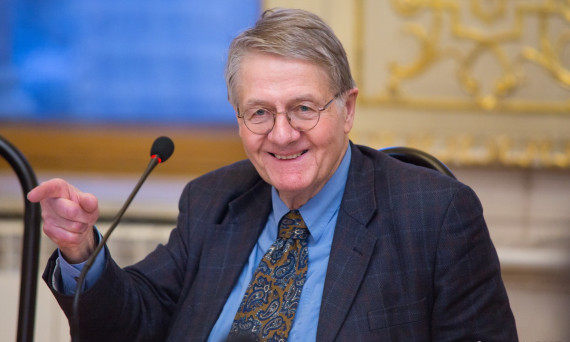The most compelling answer to the question in the title is in three parts:
(a) You cannot fathom the complexities of Russian history, society, and culture, plumb the depths of the Russian soul, without being familiar with what Russia's greatest poets, prose writers, and playwrights had to say about these matters. Pushkin, Gogol, Lermontov, Turgenev, Nekrasov, Tiutchev, Fet, Dostoevsky, Ostrovsky, Tolstoy, Leskov, Chekhov, Blok, Akhmatova, Tsetaeva, Pasternak, Bulgakov, and more contemporary writers. These ingenious Russian creative writers, even moreso than composers, painters, and choreographers, have penetrating insights into the darkest crevices and the highest aspirations of the people, the nation, whose language they master as nobody else, and use to express their insights and conjectures, albeit in artistic form.
(b) Russia's educated people know their own literature. They refer to it constantly, when discussing almost any other issues, even those that have special appeal to the social scientist, like war and peace, inequality, social conditions, international relations, law enforcement, urban strife, economics, and psychiatric disorders.
(c) For pure and unrestrained pleasure. Social scientist are human beings, and as such are fallable, vulnerable, and mortal. They need, like anyone else, to withdraw from time to time from the demands, rigors, boredom, ennui, monotony, and futility of their work. Russian literature is immensely enjoyable for its own sake, for the visceral, aesthetic, and spiritual lift that it offers to its readers.
Gerald Mikkelson is Professor Emeritus of Russian Studies at the University of Kansas in the U.S. Currently he is a guest scholar in St. Petersburg, at Pushkinsky Dom, the Institute of Russian Literature of the Russian Academy of Sciences, where is working on a monograph on Alexander Pushkin. He earned his PhD in Slavic Languages in 1971 at the University of Wisconsin--Madison, with a certificate and PhD minor in Russian Studies.







































